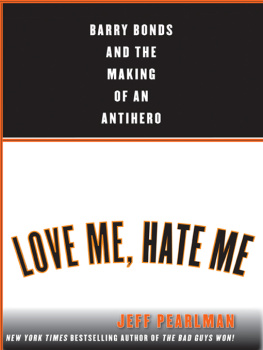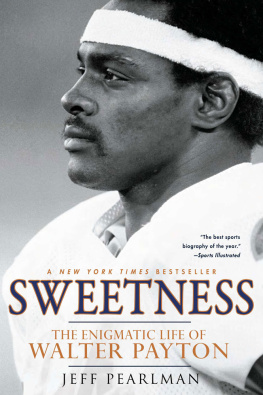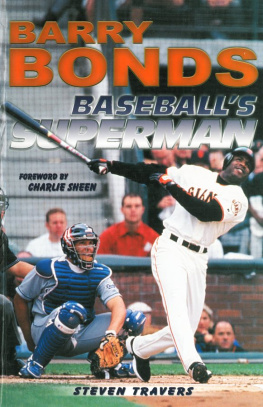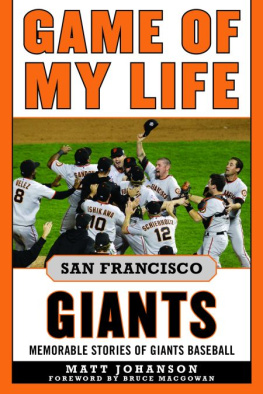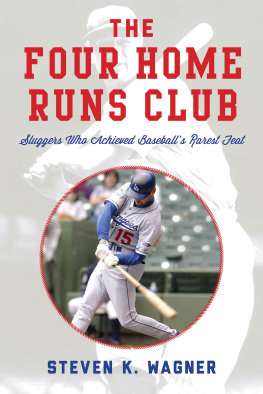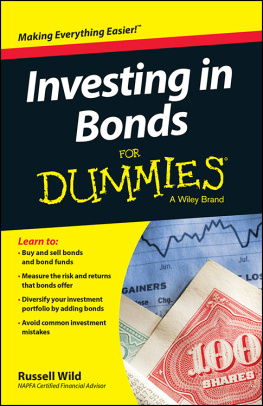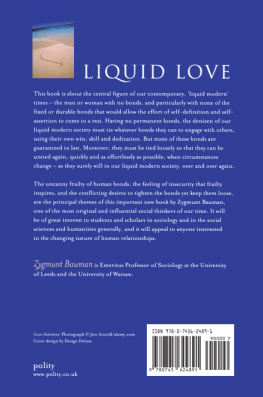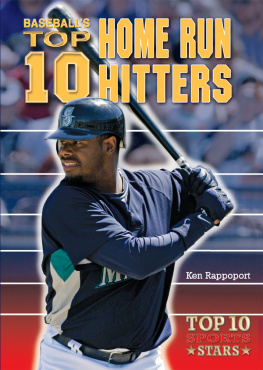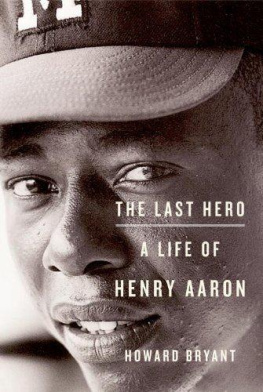The Barry I know is a quiet, caring, giving individual.
Personally, I hope Barry dies.
Love me, hate meI dont give a fuck.
I T BEGINS HERE. NOT the life itself, but the sense of attitude and entitlement. Here, on a tan couch in a white living room in the San Carlos, California, home of Marlene Rossi, housewife, mom, andagainst her better judgmentden mother of Cub Scouts Troop 53.
They sit quietly, a group of seven- and eight-year-old boys decked out in the plaid pants and screen-printed T-shirts of the early 1970s, engrossed in their latest task: knot tying. To the die-hard Scout, the assignment is an opportunity to edge closer to the coveted title of Webelos. To the happy-go-lucky Scout, its a fun, moderately meaningful activity.
To Barry Bonds, age eight, its a huge pain in the ass.
Young Barry is, in many ways, the royalty of Troop 53. He is, hands down, the best athletethe fastest, the strongest, the biggest. His father, Bobby Bonds, is a star outfielder for the San Francisco Giants who occasionally stops by to pick up his boy and sign a few autographs. Barry lives in one of the nicest houses, owns some of the hippest clothes, slings some of the cleverest trash talk, meets all the coolest people. But there is one sizable dent in his armor: He cannot tie a knot.
To Barrys left, Sam Rossi, Marlenes son and Barrys longtime pal, deftly loops square and overhand knots. Across the octagon coffee table, Scotty, Jeff, and Michael progress with graceful ease. But not Barry. He stews. He pouts. He glances jealously toward Sammy, then looks away when hes caught peeking. From the corner of her eye, Marlene observes all this and sighs. The other kids were always so enthusiastic and eager, she would say years later. But with Barry, it was always a challenge to get him to do his projects. He was always like, Oh crud, I have to do this ?
With time running short and Barrys patience wearing thin, Marlene beckons to the handsome boy with the miniature Afro and whispers reassuringly into his ear. Dont worry, she says. Well just mark down that you did the knots correctly. Itll be our little secret.
This, Barry Bonds never tells anyone.
Fast-forward 32 yearsto September 13, 2005. The San Francisco Giants have just defeated the San Diego Padres, 54, at SBC Park. Sitting alone by his locker, Barry Bonds looks bored. He fidgets with a bottle of green Gatorade. He checks his cell phone. He scratches himself.
I decide the time has come to approach Bonds about this book.
As any baseball writer knows, confronting Barry Bonds in the clubhouse is often akin to sidling up to a lion while holding 10 pounds of raw meat. Throughout the preceding months, I have tried my best to get Bonds to sit down with me. I have sent dozens of e-mails. Ive had multiple exchanges with his publicist. Ive called his manager, his agent, his former agents, his friends.
Nothing.
As Bonds relaxes on a folding chair, reporters circle nearby and an army of personal assistants awaits his next command. Finally, with little to lose, I speak up.
Barry, I say. My name is Jeff Pearlman. I used to write for Sports Illustrated. Ive communicated with your publicist quite a bit, but Im not sure what shes told you. Im writing a biography of your life. Im trying my best to be fair. And even though Ive been told you likely wont cooperate, I felt that, journalistically, I had to ask if youd want to sit down and talk.
Bonds grins, detecting a timidity hes seen in countless others. Id rather not, he says. But thanks for asking. He sticks out his hand, and I shake it.
Not so bad , I think.
Just so you know, I add. Ive interviewed everyone. Five hundred people. Your Little League teammates, your high school pals, even your Cub Scouts den mother.
Bonds scowls. Have I gone too far?
Dude, he barks derisively, I was never in the Cub Scouts.
With this he rises and walks away, pretending not to hear as I tail him to the exit shouting, Marlene Rossi! Marlene Rossi! Marlene Rossi! I am momentarily shaken. Was my research wrong? Have I screwed up the most basic of facts?
A few minutes later I relay my exchange to Pedro Gomez, the ESPN reporter whose assignment for the season is to shadow Bonds. Gomez sighs, nodding knowingly. Let me tell you something, he says. A few months ago I went up to Barry and told him that my neighbor in Arizona is Jose Rodiles. Rodiles had been Bondss teammate at Arizona State for two seasons. Barry said, I dont know that name, recalls Gomez. I said, Man, you played with him at ASU. But Barry insisted he had no idea.
A few days later, Gomez called Rodiles and told him of Bondss apparent amnesia. Thats funny, said Rodiles. Because the guy was in my fucking wedding .
I N THE INSULAR WORLD of Major League Baseball, there is no greater sin than disrespect. Most players can tolerate inflated egos. They can tolerate boredom (a job requirement). They can tolerate pain, indifference, softness, absentmindedness, excessive brutality, disregard for the rules, large men dressed as sausages, 12-minute renditions of the national anthem.
Disrespect, however, is the ultimate no-no. You dont show up the opposing pitcher. You dont spit on an umpire. You never act the coward.
That was the word running through the dugout of the San Francisco Giants on the night of October 4, 2001. Coward . Actually, it wasnt the only word. Some preferred pussy . Others, chicken-shit . Wuss, wimp, softie. Pick an adjectiveany derisive adjectiveand it was applied to Houston Astros manager Larry Dierker. With good reason.
For nearly three full games, Dierker had refused to allow his pitchers to face Barry Bonds, San Franciscos left fielder and powerful number three hitter. In any other series at any other time, few Giants would have batted an eye. Throughout the past few seasons, Bonds had been pitched around more than any man since the games inception in the 1880s. One hundred seventeen walks in 2000. A major league record 172 (and counting) in 2001. It was a running joke among the San Francisco beat writers. How many hittable balls will Barry see today? One? Two? Three, if hes lucky?
Now, circumstances were different. With his solo blast against the San Diego Padres less than a week earlier, Bonds entered the series at Houstons Enron Field needing one home run to tie Mark McGwires single-season record of 70. It was a mythical year for Bonds, who had to somehow overcome the death of a close friend and, along with the rest of America, the devastation of the September 11 terrorist attacks. Just weeks earlier inof all placesHouston, the FBI had informed Bonds that someone had threatened to shoot him. Keep hitting homersand you die.
How had it come to this? Once a spindly 185-pound leadoff hitter, Bonds had reinvented himself as the second coming of Babe Ruth. Three years earlier he had been an afterthought in the race between McGwire and Sammy Sosa to break Roger Mariss single-season home run mark. Now he was altering the modern definition of power hitter. Entering the series, both teams had six games remaining. The Giants were two back of Arizona in the National League West, and Houston was tied with St. Louis in the National League Central. No matter. Few thoughts were on the playoff races.

